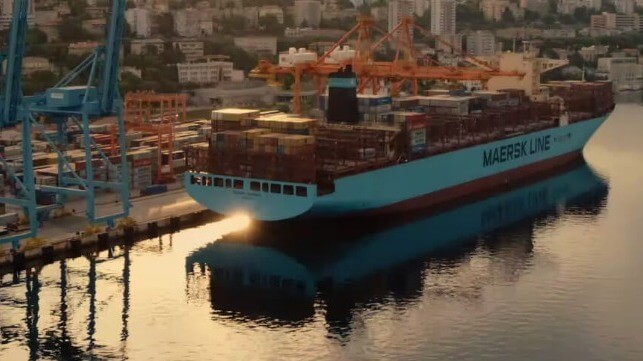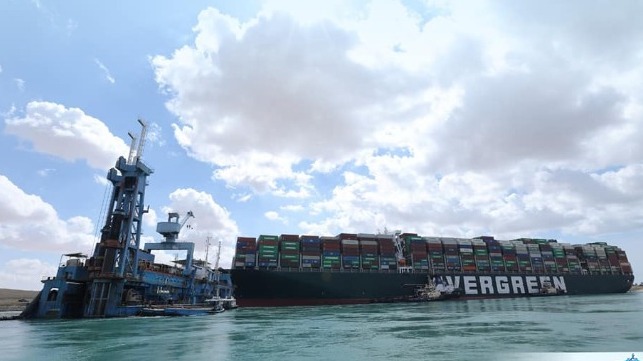Maersk to Proceed with $500M Investment in Southeast Asia

Maersk reports it plans to move forward with a more than half-a-billion dollar investment in Asia as part of the execution of its global integrator strategy focusing on an overall logistics solution. The investment, which is expected to span over three years, targets the company’s logistics and services operations as well as its ocean shipping and terminal operations despite the strong financial headwinds the company is currently experiencing.
“Southeast Asia is the fastest growing area in Asia Pacific,” emphasizes Vincent Clerc, CEO of A.P. Møller–Maersk, noting the e-commerce boom, government’s efforts to capitalize on global manufacturing diversification, and rising inter-regional trade spurring sustained growth in the region. “Our investment reflects the commitment to being the global logistics integrator.”
During the third quarter, while reporting a nearly 50 percent decline in quarterly revenues and EBIT income falling from $9.5 billion to just $538 million, the company said it intended to continue to move forward with the investments in its strategy. Clerc however warned investors that with “challenging times ahead,” the company was cutting costs including completing a 10,000-head staffing reduction that was already more than 50 percent completed.
The total investment planned for Southeast Asia will be more than $500 million and will cut across the company’s warehousing and distribution operations as well as air cargo, inland logistics, ocean shipping, and terminal operations.
Maersk reports it will invest in scaling its warehousing and distribution footprint by up to 50 percent across the area to augment its ocean, air, and land capabilities, serving both international and domestic markets and demand. By 2026, Maersk expects to add nearly 480,000 sqm capacity spread across Malaysia, Indonesia, Singapore, and the Philippines creating mega distribution centers that are strategically located.
They highlighted the investments being made at Port of Tanjung Pelepas, located in Malaysia, where it is poised to become a key integrated logistics hub. Furthermore, Maersk is also investing in increasing its landside warehouse capacity at Singapore's Changi Airport, intending to solidify its position as Maersk’s regional air freight hub.
Other investments will include significantly increasing haulage truck capacity in Southeast Asia including a pilot biodiesel-based haulage trucks and the introduction of EV trucks by 2024. In the ocean and terminal segments, Maersk will continue to invest in expanding its infrastructure across the region through APM Terminals.
Additionally, the company revealed that it is working closely with authorities in the region to explore opportunities in building green fuel infrastructure to support its future green vessel fleet.
Maersk currently has a presence in four markets in Southeast Asia, including Singapore, Malaysia, Indonesia, and the Philippines.
Maersk Settles Lawsuit Over Ever Given's Suez Canal Shutdown

Maersk Group has decided to settle a lawsuit over the disruption caused by the grounding of the massive boxship Ever Given, which shut down the Suez Canal for six days in 2021.
The number-two ocean carrier filed suit in Denmark against unspecified parties in connection with the grounding, and had sought damages of about $45 million. Danish outlet ShippingWatch confirmed Thursday that the lawsuit has ended with an out-of-court settlement.
The Ever Given went aground in the Suez Canal on March 23, 2021, shortly after she entered the southern entrance. Her length exceeded the canal's width, and with bow and stern firmly wedged in each bank, she blocked the waterway to all marine traffic.
For the complex salvage operation, the Suez Canal Authority brought in shore-based excavating equipment, cutter suction dredgers and at least 10 tugs. With much effort, the ship was finally refloated on March 29. The event made global headlines and put shipping in the spotlight, providing consumers with a rare direct example of how maritime commerce can affect their daily lives.
Over the course of the six-day shutdown, up to 400 ships had their voyages disrupted by the shutdown of the canal, including 50 boxships with connections to Maersk. In response, Maersk sued shipowner Shoei Kisen Kaisha and operator Evergreen at Denmark’s Maritime and Commercial Court for damages from the disruption.
Evergreen denied responsibility for the incident. “As Ever Given is leased by Evergreen under the terms of a time-charter agreement, all expenses for the refloating operation and any liabilities are the responsibility of the vessel’s owner," the firm said in a statement after the suit was filed.
The case's progress was closely watched in the liner shipping world, as a win for Maersk could provide a blueprint for other affected carriers to file similar claims. On Thursday, Maersk confirmed that it has withdrawn the lawsuit, following news of a settlement agreement.
Boskalis, owner of salvor SMIT Salvage, filed suit in a London court earlier this year seeking compensation from Shoei Kisen Kaisha for its role in freeing the stranded ship. According to the FT, the estimated value of the Ever Given job was in the range of $25-50 million.
SMIT has continued to work with Shoei Kisen Kaisha: the salvor played a role in the response to the burning car carrier Fremantle Highway, which caught fire off the coast of the Netherlands in July.
No comments:
Post a Comment